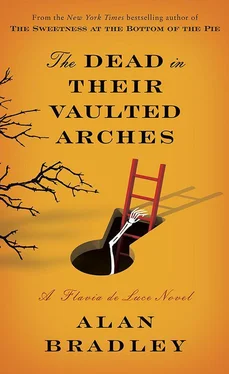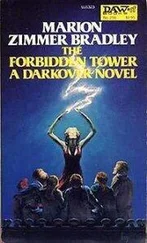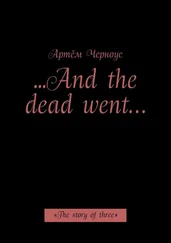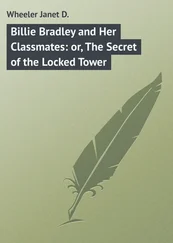I grinned. Even if we broke through the bottom of the boat, we’d only find ourselves up to our knees in sun-warmed water.
“Life’s like that, too,” Aunt Felicity continued. “Too much push, and bang through the bottom one goes. Still, if one doesn’t paddle, one doesn’t get anywhere. Maddening, isn’t it?”
I could hardly believe it: Here I was floating along on an eighteenth-century lake with the Gamekeeper herself, and yet to a spy lurking behind a ruined statue on the Visto, we would look to be no more than a pleasant painting by one of those French impressionists: Monet, perhaps, or Degas.
Light twinkled on the lake and under the hanging willows.
We were like an image on a ciné screen.
After breakfast, I had taken Aunt Felicity to my laboratory and shown her the film I had developed.
She had watched it in silence, and when the last frame had run through the projector, seized the spool of film and thrust it into her pocket.
“Pheasant sandwiches.”
Her mouth formed the words, but not a sound came out.
“The phrase was chosen carefully for its combination of plosives and fricatives: consonants which could be formed in total silence. Innocuous to the casual observer, but a clear warning of danger to an initiate.”
“But who was Harriet warning?”
“Me,” Aunt Felicity said. “It was I who was shooting the film. I had a perfect view of your mother in the camera’s viewfinder and recognized her warning instantly.”
“Against who?” I was about to say, but caught myself just in time to correct it to “Against whom?”
“The late Lena,” Aunt Felicity answered. “She had come down to Buckshaw unexpectedly, as she was wont to do, and had waded across to the Folly without our noticing, perhaps hoping to catch us off guard. Your mother—and it is to her eternal credit that she did so—had already begun, even then, to suspect Lena’s leanings, if I may coin a rather tawdry phrase.”
It took me a moment, but I nodded to show that I understood.
But why hadn’t Harriet simply called out, “Hullo! Here’s Lena!” or some such thing? Why had she chosen to mouth a coded warning to Aunt Felicity alone?
I recalled Lena’s words: “We were quite chummy, your mother and I—at least when we ran into each other outside of a family setting.”
Outside of a family setting, she had said. Perhaps inside of one they were at loggerheads. It was a situation I had no difficulty in understanding.
Families were deep waters indeed, and I still had much to learn about what luces lurked beneath the surface of my own.
Now, floating lazily on the lake with Aunt Felicity, surrounded by the reality, those black-and-white images from another time—filmed at this very location—seemed as distant as a half-forgotten dream.
“Who was the man in the window?” I asked.
It was one of the strands of the puzzle I had been unable to unwind to my satisfaction.
“Tristram Tallis,” Aunt Felicity said.
“I thought as much. But why was he dressed in an American uniform?”
“A very perceptive observation,” Aunt Felicity said, “since he was in view for mere fractions of a second.”
“Well, actually it was Dogger who spotted that,” I admitted.
“You showed Dogger the film?” She pounced upon my words like a leopard upon its prey.
“Yes,” I admitted. “I didn’t know it was important—I mean, I didn’t know what it meant.”
I still didn’t, but I was hoping to find out.
“Was it wrong of me?”
Aunt Felicity did not answer my question. “It is essential,” she said, “to know at all times who knows what. Keep Kipling in mind.”
“Kipling was a goddamn Tory and a jingoist to boot,” I said, hoping to seem wise beyond my years.
“Pfah!” Aunt Felicity said, surprising me by spitting over the side of the boat. “You picked up that nonsense from Lena, or at least from Undine.”
I admitted I had.
“Kipling was no Tory, nor was he a jingoist. He was a spy in the service of Queen Victoria, and a damned good one at that. He as much as said so, but no one recognized it. They thought he was prattling on for children. Perfect camouflage that, you’ll have to admit.”
She sat up straight in the punt, and for a moment I had the uncanny feeling that I was in the presence of a queen.
She raised her voice an octave and in a royal accent began to recite:
“I keep six honest serving-men
They taught me all I knew;
Their names are What and Why and When
And How and Where and Who .
“As a member of the Nide, you will need to keep those words always in the forefront of your mind.”
“Was Lena a member of the Nide?” I asked.
“Lena was the enemy!” Aunt Felicity hissed. “One of the dark de Luces. The Black Ones, we called them in my youth. We were told horror stories about them, and even made up a few of our own.”
“She killed my mother, didn’t she?”
It was the question whose answer I dreaded, but I needed to know.
“I have every reason to believe she did,” Aunt Felicity said, “but we shall never be sure of it. When she died, the truth died with her. There was only one other person on that final trek in Tibet, and he unfortunately—”
“Terence Alfriston Tardiman, bachelor, of 3A Campden Gardens, Notting Hill Gate, London, W8, aged thirty-seven,” I rattled off, my words tumbling over one another in the mad race to get out. “The man under the train!”
Aunt Felicity’s eyes narrowed as if she were squinting at me through tobacco smoke, and I was reminded for an instant of Dr. Kissing.
“Sowerby has been indiscreet,” she said. “I shall have to call him to account.”
“Please don’t be hard on Adam,” I said. “He’s more or less my partner—ever since that business with the Heart of Lucifer.”
“I am aware of that,” Aunt Felicity said, “but he must be corrected notwithstanding. The Nide must not be jeopardized by loose lips. Lives may be lost—and one of them may be yours. Do you understand, Flavia?”
“Yes, Aunt Felicity. Adam had been following Tardiman for five days, and not for the first time, either.”
I let my usual silence fall, hoping to open Aunt Felicity’s floodgates, but it did not work. She was even foxier than I was.
“Was Tardiman one of the Nide?” I asked. “One of us?”
How proud I was to be able to say that!
“There are certain questions you must learn not to put to me,” Aunt Felicity said. “Not, at least, so far as they concern the living.”
“But Tardiman is dead,” I protested.
“So he is,” she said reflectively, and then after a time she added, “He may have been a double agent.”
“He came to Bishop’s Lacey to warn us of grave danger and that the Nide was under attack. Lena probably guessed that he would be here. She saw it as perhaps her last opportunity to silence him. Once he was dead, no one would know the truth about Harriet but Lena herself.”
“Very likely,” Aunt Felicity said.
“But why only now?” I asked. “Why did it take her ten years to find him?”
“Because he has been living all the while under an assumed name.”
“Tardiman!” I said. “Tardiman was not his real name. Who was he, Aunt Felicity?”
“I have told you, Flavia, that there are certain questions you must not put to me insofar as they concern the living. I must tell you also that certain questions must not be asked about the dead.”
“I’m sorry,” I said, realizing that I might never know the name of the man I had watched die under the train at Buckshaw Halt. Nor might I ever know why Tristram Tallis had stayed at Buckshaw in an American serviceman’s uniform. Perhaps it had something to do with the Japanese naval codes and the fact that America had, at that time, not yet entered the War.
Читать дальше












